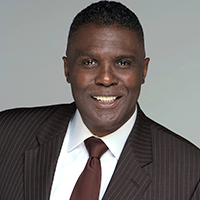By Glenn Ellis
(Trice Edney Wire) – “Much of the work of … prevention must occur at the community level, where human relationships breathe life into public policy. American communities are also home to scores of faith-based and secular initiatives that help reduce risk factors and promote protective factors associated with many of our most pressing social problems”
The separation between church and the state of your health may be narrowing, according to a new study released in the journal Health Promotion Practice.
In a survey of more than 1,200 members of 11 African-American churches in North Carolina, an overwhelming majority of congregants said they believe that the church has a responsibility to promote healthy living within the community they serve.
Many of us who’ve grown up in the church understand its historical context, and know that churches have traditionally functioned beyond spiritual guidance and social support.
Surprisingly to some, many African-Americans still believe their church is responsible for promoting health in their members and the community. But what may be more surprising is how those congregants say they’d like to receive those messages about their health — by way of interactive workshops and health fairs instead of from the pulpit.
I have often been critical of health promotion efforts which seek to reach the black community through churches, because while churches are important part of black culture, public health researchers often overestimate the role of the pastor, alone, as the sole mechanism for crafting and presenting health information
Presumably health ministry members are more knowledgeable than most pastors when it comes to health messages. After all, they are the group within the church that focuses on the promotion of health and healing as part of the mission and ministry of the larger faith group and the wider community. Even though this can vary from one church to the next, if appropriate technical support can be developed for church health ministries, this could be a valuable new resource for reaching African Americans with accurate and authoritative health information
While the Pastor does act as gatekeeper and advocate for a health program, most churches conduct health missions on their own via health ministry, without the ongoing presence of medical institutions as partners.
However, a stronger partnership between church leadership and health providers could potentially reduce the impact of health disparities for African-Americans.
Last weekend, I had a double privilege of going to Birmingham, Alabama (my hometown) and to be the featured speaker at Trinity Baptist Church, ministered by my cherished childhood friend Rev. John E. King, Jr.
The additional bonus was being able to fellowship at the church I grew up in, St. Paul A.M.E., on Founder’s Day, recognizing the life of Richard Allen. All of this took place in the very neighborhood where I was born and raised during the height of the Civil Rights Movement!
Witnessing the power, influence, and impact of an awesome community engagement reminded me how the historic role that the African American Church in our communities is as relevant and needed today as ever.
At its best, the contemporary African-American church continues in a rich tradition, providing material benefits, community organizing and spiritual renewal for a community that remains scarred by a secular world that remains stubbornly resistant to the idea of black citizenship, let alone black humanity.
Symbolically, the Black church has always represented more than a house of worship. Metaphorically, it has represented the protector of black bodies.
Their work provides an inspiring example of a community that is working toward achieving the Triple Aim of “ Body, Mind, and Spirit”.
Spiritual leaders and faith communities and now the research community know that practical applications of faith and spirituality can promote healthy living and provide pathways through which human suffering, be it mental, emotional, spiritual, or physical can be overcome.
Conducting a community health fair at African American churches across this country can help to fill the gap that currently exists in our health care system. Many people in our community are in need of health care services and resources.
Research studies have shown that 80 percent of health status is determined by the social determinants of health”. In other words, what happens and what we do where we live is more important in determining our health, than what happens in the doctor’s office or the hospital.
Why not start a real “Movement” of local, church/faith-sponsored events that can help our communities to thrive, and enjoy the best health possible?
Remember, I’m not a doctor. I just sound like one. Take good care of yourself and live the best life possible!
The information included in this column is for educational purposes only. It is not intended nor implied to be a substitute for professional medical advice. The reader should always consult his or her healthcare provider to determine the appropriateness of the information for their own situation or if they have any questions regarding a medical condition or treatment plan.
















